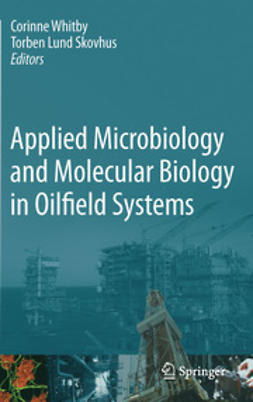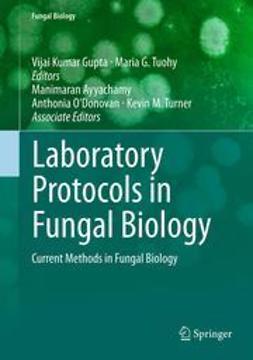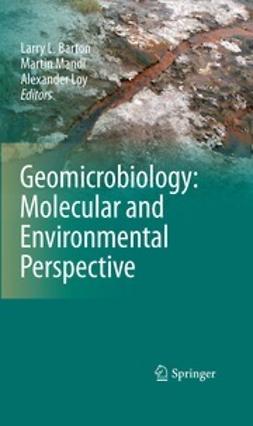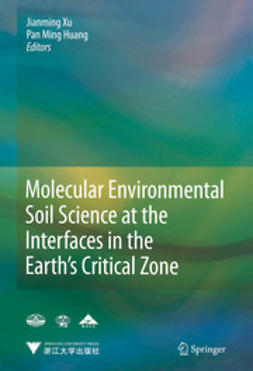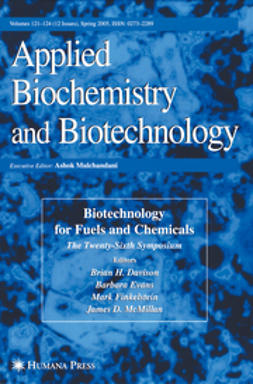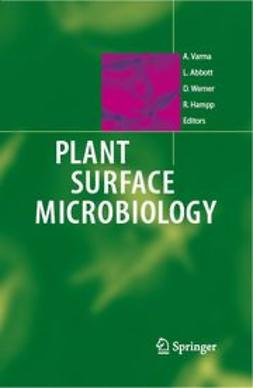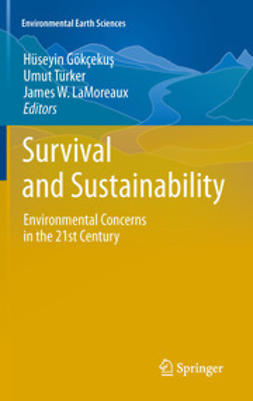Whitby, Corinne
Applied Microbiology and Molecular Biology in Oilfield Systems
1. Introduction
Corinne Whitby, Torben Lund Skovhus
2. Sampling and Nucleic Extraction Procedures from Oil Reservoir Samples
Geert M. Kraan, Maarten Ridder, Bart P. Lomans, Gerard Muyzer
3. Application of Molecular Microbiological Methods to the Oil Industry to Analyse DNA, RNA and Proteins
Sean M. Caffrey
4. Which Microbial Communities Are Present? Importance of Selecting Appropriate Primers and Probes for Use in Molecular Microbiological Methods (MMM) in Oilfields
Ketil Bernt Sørensen
5. Which Microbial Communities are Present? Application of PCR-DGGE: Case Study on an Oilfield Core Sample
Geert M. Kraan, Floris Buijzen, Cor A.T. Kuijvenhoven, Gerard Muyzer
6. Which Microbial Communities Are Present? Application of Clone Libraries: Syntrophic Acetate Degradation to Methane in a High-Temperature Petroleum Reservoir – Culture-Based and 16S rRNA Genes Characterisation
Natalya M. Shestakova, Valeriy S. Ivoilov, Tatiana P. Tourova, Sergey S. Belyaev, Andrei B. Poltaraus, Tamara N. Nazina
7. Which Microbial Communities Are Present? Using Fluorescence In Situ Hybridisation (FISH): Microscopic Techniques for Enumeration of Troublesome Microorganisms in Oil and Fuel Samples
Lars Holmkvist, Jette Johanne Østergaard, Torben Lund Skovhus
8. Which Microbial Communities Are Present? Sequence-Based Metagenomics
Sean M. Caffrey
9. How Many Microorganisms Are Present? Quantitative Reverse Transcription PCR (qRT-PCR)
Andy Price, Laura Acuña Álvarez, Corinne Whitby, Jan Larsen
10. How Many Microorganisms Are Present? Techniques for Enumerating Microorganisms in Oilfields
Ketil Bernt Sørensen, Torben Lund Skovhus, Jan Larsen
11. Which Members of the Microbial Communities Are Active? Microarrays
Brandon E.L. Morris
12. Problems Caused by Microbes and Treatment Strategies Monitoring and Preventing Reservoir Souring Using Molecular Microbiological Methods (MMM)
Antje Gittel
13. Problems Caused by Microbes and Treatment Strategies The Effect of Nitrate Injection in Oil Reservoirs – Experience with Nitrate Injection in the Halfdan Oilfield
Jan Larsen, Torben Lund Skovhus
14. Problems Caused by Microbes and Treatment Strategies: Monitoring Microbial Responses to Biocides; Bioassays – A Concept to Test the Effect of Biocides on both
Lars Holmkvist, Uffe Sognstrup Thomsen, Jan Larsen, Michael Jensen, Torben Lund Skovhus
15. Problems Caused by Microbes and Treatment Strategies: Identification of H
Márcia T.S. Lutterbach, Luciana S. Contador
16. Problems Caused by Microbes and Treatment Strategies: Rapid Diagnostics of Microbiologically Influenced Corrosion (MIC) in Oilfield Systems with a DNA-Based Test Kit
Torben Lund Skovhus, Ketil Bernt Sørensen, Jan Larsen
17. Problems Caused by Microbes and Treatment Strategies Anaerobic Hydrocarbon Biodegradation and Biocorrosion: A Case Study
Joseph M. Suflita, Kathleen E. Duncan
18. Problems Caused by Microbes and Treatment Strategies Health and Safety Issues from the Production of Hydrogen Sulphide
Nicole Williamson
19. Problems Caused by Microbes and Treatment Strategies Downstream Petroleum Microbiology – An Industry Perspective
Elaine McFarlane
20. How Specific Microbial Communities Benefit the Oil Industry: Biorefining and Bioprocessing for Upgrading Petroleum Oil
Ajay Singh
21. How Specific Microbial Communities Benefit the Oil Industry: Microbial-Enhanced Oil Recovery (MEOR)
Svetlana Rudyk, Erik Søgaard
22. How Specific Microbial Communities Benefit the Oil Industry: Anaerobic Microbial Processes and the Prospect for Methane Production from Oil
Lisa Gieg
23. How Specific Microbial Communities Benefit the Oil Industry: Case Study – Proof of Concept that Oil Entrained in Marginal Reservoirs Can Be Bioconverted to Methane Gas as a Green Energy Recovery Strategy
Lisa Gieg
24. How Specific Microbial Communities Benefit the Oil Industry: Dynamics of
Arvind K. Singh, Angela Sherry, Neil D. Gray, Martin D. Jones, Wilfred F.M. Röling, Ian M. Head
25. How Specific Microbial Communities Benefit the Oil Industry: Significant Contribution of Methyl/Methanol-Utilising Methanogenic Pathway in a Subsurface Biogas Environment
Dariusz Strąpoć, Matt Ashby, Ladonna Wood, Rick Levinson, Bradley Huizinga
26. Fuel for the Future: Development of New Fuels, e.g. Biofuels
Gitte Sørensen, Ketil Bernt Sørensen, Hans Ove Hansen, Sune D. Nygaard
27. Fuel for the Future: Biodiesel – A Case study
Márcia T.S. Lutterbach, Mariana M. Galvão
28. Fuel for the Future: Unlocking New Fuel Resources
Richard Johnson, Corinne Whitby
Nyckelord: Chemistry, Applied Microbiology, Microbiology, Microbial Ecology, Energy Technology
- Författare
- Whitby, Corinne
- Skovhus, Torben Lund
- Utgivare
- Springer
- Utgivningsår
- 2011
- Språk
- en
- Utgåva
- 1
- Sidantal
- 16 sidor
- Kategori
- Naturvetenskaper
- Format
- E-bok
- eISBN (PDF)
- 9789048192526

